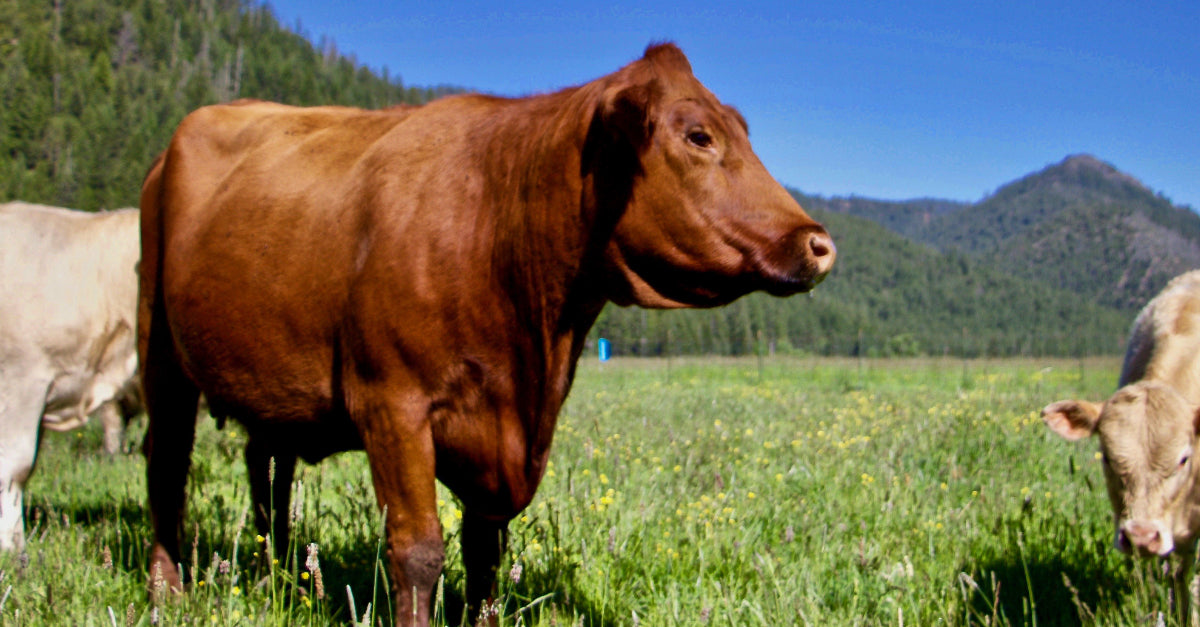
Environmental Benefits of Choosing Grass-Fed Meat Over Grain-Fed Meat
As we grow more environmentally conscious and become more aware of our global footprint, carnivores everywhere are wondering about their meat consumption. There is an ongoing debate between the environmental benefits of grass-fed meat over grain-fed meat. This issue is complicated, so today, we dig into this debate a little bit deeper.
Pasture-fed cattle are healthier than grain-fed cattle
All US beef cattle start out eating grass, but grass-fed meat means that the animal is fed grass the duration of their life and have access to pasture during their growing season. The argument behind grain-fed over grass-fed is that grain-fed animals don't have as long of a lifespan as grass-fed animals, which means they lessen the methane gas that goes into the environment. Unfortunately, grain-fed cattle often deal with more acid in their digestive system, which increases E. coli and increases the methane gas into the atmosphere. Also, grain-fed cattle require antibiotics because of these issues, which end up in our water and food supplies. Grass-fed cattle do not deal with as many digestive problems and are not given antibiotics, which makes it a far better alternative.
Well-managed pastures provide environmental benefits
When a pasture is managed well, it can offer significant environmental benefits. AMP (or adaptive multi-paddock grazing) leads to more sustainable meat because the cattle are moved around to reduce the impact on the land. A recent study proves that this responsible grazing in the finishing phase makes a far better approach. Man-made water is formed from the waste produced by grain-fed livestock, which can leak into the neighboring water supply, which is an issue because this manure contains the antibiotic residue given to the cattle. This problem increases pollution and odor in the area.
Grain-fed cattle can have long term damage to health and the environment
For grain-fed cattle, they are consuming grain, such as corn and other grains. Growing these grains have an increase in pesticide use, which harms the environment. Plus, corn and soy - the grains most often fed to cattle - are often genetically modified to withstand the use of pesticides - which end up getting passed onto you the consumer. There is also growing evidence that genetically modified crops are bad for the environment.
Overall, the issue between grass-fed cattle vs. grain-fed meat is complicated. However, the benefits of grass-fed meat will not only help your health but also is better for the environment.
